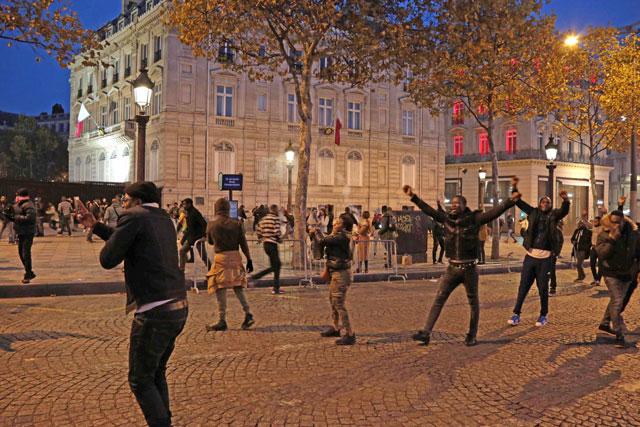You are here
Sexual violence against refugee men, boys ‘widely underestimated’ — UNHCR study
By Camille Dupire - Dec 09,2017 - Last updated at Dec 09,2017
AMMAN — A recent study by the UNHCR, warned against the extent of sexual violence against men and boys in the Syrian crisis, stressing that “this violence may be far more widespread than previously understood”.
Titled “We keep it in our heart — Sexual violence against men and boys in the Syria crisis”, the study, which was conducted in late 2016, comprised several dozen of informants and focus group discussions (FGD), involving some 196 refugees in Iraq, Lebanon and Jordan, according to a statement by the UNHCR.
The study opened, quoting Lara (all names were changed to protect the refugees’ identity), a woman who took part in a Women’s FGD in Jordan, stated: “The main reason we left is not fear of shelling or bullets. The main reason we left is because of fear for our honour. This is the main reason – fear of us being abused, all of us, our daughters and our men.”
Between 19.5 to 27 per cent of male survey respondents in the three countries confirmed having experienced sexual harassment or unwanted sexual contact as boys, the report showed adding that one focus group of refugee women in Jordan estimated that 30 to 40 per cent of all adult men in their community had experienced sexual violence while in detention in Syria.
Individual interviews included in the report provide “shocking accounts” of what refugees, or others known to them, have experienced since the start of the crisis. Mentions of “severe and debilitating violence”, including weapons being used for sexually assault, sexual exploitation and blackmail, and several other practices were reported by the interviewees, most of which were said to have occurred in detention or makeshift prisons.
“When I was in detention in Syria, I was tortured in every possible way. We were 80 persons in one cell with no light for 30 days. We were all naked. At night, they hung us from our hands — they tortured us with electricity… I thought we would die,” a refugee identified as Tarek was quoted in the report as saying.
The study highlighted the varied consequences of such practices on the refugees’ personal, emotional, economic and social state.
“Sexual violence, particularly sustained sexual torture, had profoundly debilitating and destabilising psychological consequences,” the report indicated, citing physical trauma, social stigma with male victims being shunned and shamed, economic hardship due to poor mental health, community marginalisation, or compromised physical health.
The survey also pointed out the high rates of school dropouts among these victims.
“One of my uncles in Syria was arrested. A few months after he was released from detention, he told us — he broke down, crying in front of us — that there was not one spot on his body that had not been abused by an electric drill. After he was released he stopped eating and became alcoholic. He died from kidney failure,” Ahmed, a victim’s relative who took part in Jordan’s Young Men’s FGD.
Among victims in countries of asylum, one respondent described sexual violence, often perpetrated by older youth, as happening “on a daily basis”, further compounded by the dismissal of their complaints, often referred to as “bullying”.
“These are most disturbing accounts revealing just how grave the risk of sexual violence has become both for women and girls and, as shown by this recent report, also men and boys,” said Volker Türk, UNHCR assistant high commissioner for protection, adding “it is clear too that we are faced with a vicious cycle here of little help being available, limited outreach to male survivors, inaccessible services, and a culture of silence — all of which reinforce a myth that this problem is rare.”
Following the examination of the characteristics, causes and impact of sexual violence against boys and men, in addition to the identification of good practices to address the needs of the victims, the report outlined a number of recommendations for humanitarian agencies and parties involved in working with refugees.
It called for stronger prevention strategies, better confidentiality arrangements, protection against reprisals, improved survivor care, and strengthened awareness among humanitarian agencies and staff.
Related Articles
GENEVA — Syrian government forces and allied militias have raped and sexually assaulted women, girls and men in a campaign to punish opposit
DUBAI, United Arab Emirates — Men, women and children fleeing the Horn of Africa have faced torture and sexual violence in conflict-wracked
PARIS — France will be the first to welcome African refugees evacuated from Libya to Niger by the United Nations refugee agency, French offi












